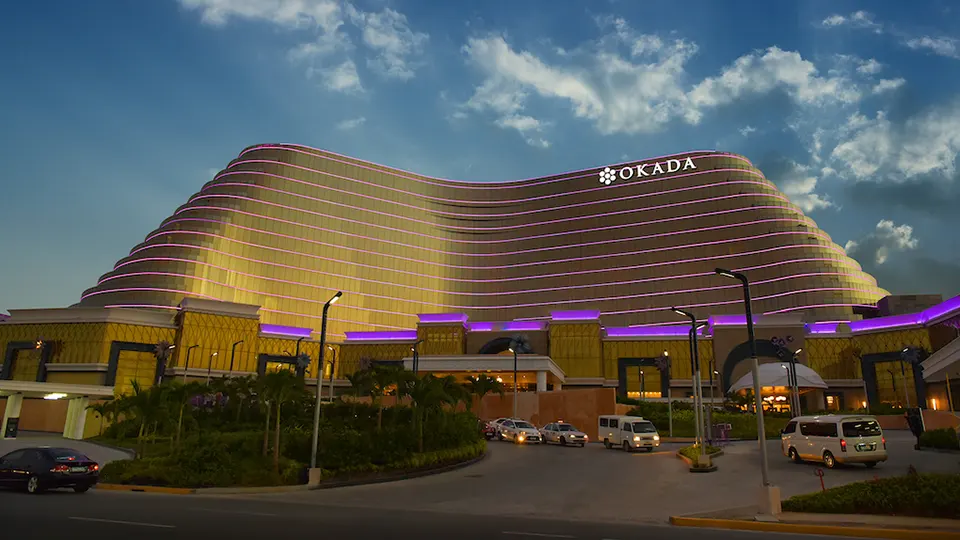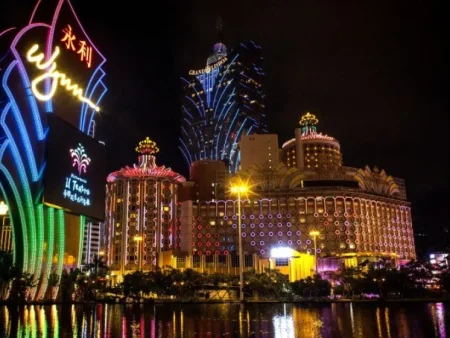The VIP revenue at Okada Manila, a luxury gaming and entertainment complex in the Philippines, has become a barometer for the health and evolution of the regional high-stakes gaming industry. As the global casino market continues to evolve post-pandemic, the trends in VIP segments—especially those seen at premier establishments like Okada Manila—offer valuable insights into changing consumer behaviors, market competitiveness, and economic resilience.
Understanding VIP Gaming: Why It Matters

Apacaff | Before diving into the specifics of the VIP revenue at Okada Manila, it’s essential to understand why this revenue stream garners such close attention. VIP revenue refers to the income generated from high-rolling players who typically wager large sums of money. These elite customers—often flown in from across Asia and beyond—are courted by casinos with lavish perks, private rooms, and premium services.
Unlike the mass market, VIP patrons contribute disproportionately to a casino’s bottom line. A single high-roller can bring in as much revenue as dozens of casual players. Therefore, fluctuations in this segment can have a dramatic impact on overall financial performance.
Okada Manila: A Brief Overview
Located in the Entertainment City gaming zone in Parañaque, Okada Manila stands as a pillar of luxury in the Philippines’ burgeoning casino industry. Spanning over 44 hectares, the property boasts:
- A vast gaming floor with hundreds of tables and slot machines
- Opulent suites and villas tailored for the ultra-wealthy
- Fine dining restaurants and a world-class spa
- One of the largest dancing fountains in the world
This combination of grandeur and exclusivity has made Okada Manila a hotspot for international high-rollers, particularly from China, South Korea, and Japan.
Current Trends in VIP Revenue at Okada Manila
Declining Numbers in Q1
Recent financial disclosures revealed a notable decline in VIP revenue at Okada Manila during the first quarter of the fiscal year. Compared to previous quarters, the downturn was significant, raising concerns among investors and analysts alike. The figures are a stark contrast to the boom periods seen before the COVID-19 pandemic, when VIP clients were flocking in large numbers and spending freely.
Root Causes of the Decline
Several interwoven factors have contributed to the drop in VIP revenue at Okada Manila:
1. Heightened Regional Competition
New and upgraded casino resorts in Asia—particularly in Vietnam, Cambodia, and South Korea—have increased the competition for high-net-worth individuals. These destinations often offer comparable luxury experiences with tailored incentives, siphoning off potential VIP traffic from Okada Manila.
2. Global Economic Volatility
High-rollers, despite their wealth, are not immune to economic concerns. With global inflation, currency fluctuations, and uncertain financial markets, many affluent individuals have become more conservative in their discretionary spending. This risk-averse behavior directly affects high-stakes gambling revenue.
3. Lingering Travel Challenges
Though most pandemic-related travel restrictions have eased, some friction still exists. Visa policies, limited direct flights, and regional health concerns can deter international VIPs from traveling to the Philippines, reducing footfall at Okada Manila’s elite gaming lounges.
Mass Market Resilience: A Silver Lining
While the VIP revenue at Okada Manila faces headwinds, there is encouraging news from the mass market segment. Gaming revenues from everyday patrons have remained steady, even showing signs of growth in certain months. This diversification suggests a more balanced revenue model that could provide a cushion during VIP downturns.
As noted by casino economics expert Michael Go, “Mass market gaming may lack the glamor of VIP tables, but it provides much-needed volume and stability. Okada Manila’s ability to attract this crowd is a strong sign of its operational health.”
Strategic Responses from Okada Manila
1. Revisiting VIP Loyalty Programs
To reinvigorate interest from high-rolling players, Okada Manila has begun restructuring its VIP loyalty offerings. These changes include:
- Enhanced cashback incentives
- Personalized concierge services
- Invitations to exclusive international events
- Free flights and accommodations for top-tier clients
These tailored perks are designed not only to entice returning players but also to capture new VIPs from competitors.
2. Investing in Digital Marketing and Data Analytics
Understanding the behaviors and preferences of elite clientele is crucial. Okada Manila is leveraging advanced analytics to track spending patterns, game preferences, and visit frequency among VIPs. This data-driven approach allows the property to offer more relevant, timely, and effective promotions.
3. Expanding Regional Partnerships
To combat the effects of travel restrictions and broaden their customer base, Okada Manila has been exploring partnerships with luxury travel agencies, private jet companies, and VIP junket operators. These collaborations can streamline the travel process for VIP guests and provide added convenience and prestige.
Expert Opinions: What Industry Leaders Are Saying
“The dip in VIP revenue at Okada Manila is not an isolated incident—it reflects a recalibration of luxury gambling across Asia,” noted Dr. Emily Tan, a respected gaming analyst based in Manila.
“However, the strength of the Okada brand, coupled with its ability to adapt, suggests that a rebound is likely if the resort continues to innovate and engage its high-value clients.”
Industry stakeholders agree that while short-term challenges persist, the long-term outlook depends largely on how quickly and efficiently properties can adapt to post-pandemic consumer expectations.
Global Comparisons: Is Okada Alone?

It’s important to place the VIP revenue at Okada Manila in a global context. Other renowned casinos, including those in Macau, Singapore, and Las Vegas, are experiencing similar slowdowns in their high-stakes segments.
In Macau, for instance, VIP gaming revenue has fallen significantly due to stricter regulations on junket operators and a more cautious Chinese consumer base. Singapore’s Marina Bay Sands has also shifted its focus to attracting affluent tourists beyond the gambling floor, emphasizing dining, shopping, and entertainment.
These parallels suggest that Okada Manila is not alone in its struggles and could potentially learn from the diversification strategies employed by its global counterparts.
Future Outlook: What Lies Ahead?
Signs of Recovery
There is cautious optimism that VIP revenue at Okada Manila could recover in the coming quarters. Key reasons include:
- The return of direct international flights to Manila
- Improving economic sentiment in Asia
- Increased regional tourism efforts by the Philippine government
Necessary Long-Term Adjustments
Nonetheless, for sustained recovery, Okada Manila must embrace a multi-pronged approach:
- Diversify offerings: Emphasize experiences beyond gambling, such as wellness retreats and culinary tourism.
- Enhance digital infrastructure: Utilize mobile apps and online platforms for seamless guest engagement.
- Strengthen crisis preparedness: Develop contingency plans for future economic or geopolitical disruptions.
Conclusion: Adapting to a New VIP Paradigm
In conclusion, the trends in VIP revenue at Okada Manila are emblematic of larger shifts occurring throughout the global casino landscape. While the recent decline is cause for concern, it also presents an opportunity for reinvention. By focusing on personalization, innovation, and customer experience, Okada Manila can position itself not only as a resilient player in the market but as a forward-thinking leader in the luxury gaming space.
As travel rebounds and economic headwinds ease, the resort’s ability to attract and retain VIP clientele will be a critical component of its future success. The path forward will require bold thinking, but the potential rewards—both reputational and financial—are significant.












